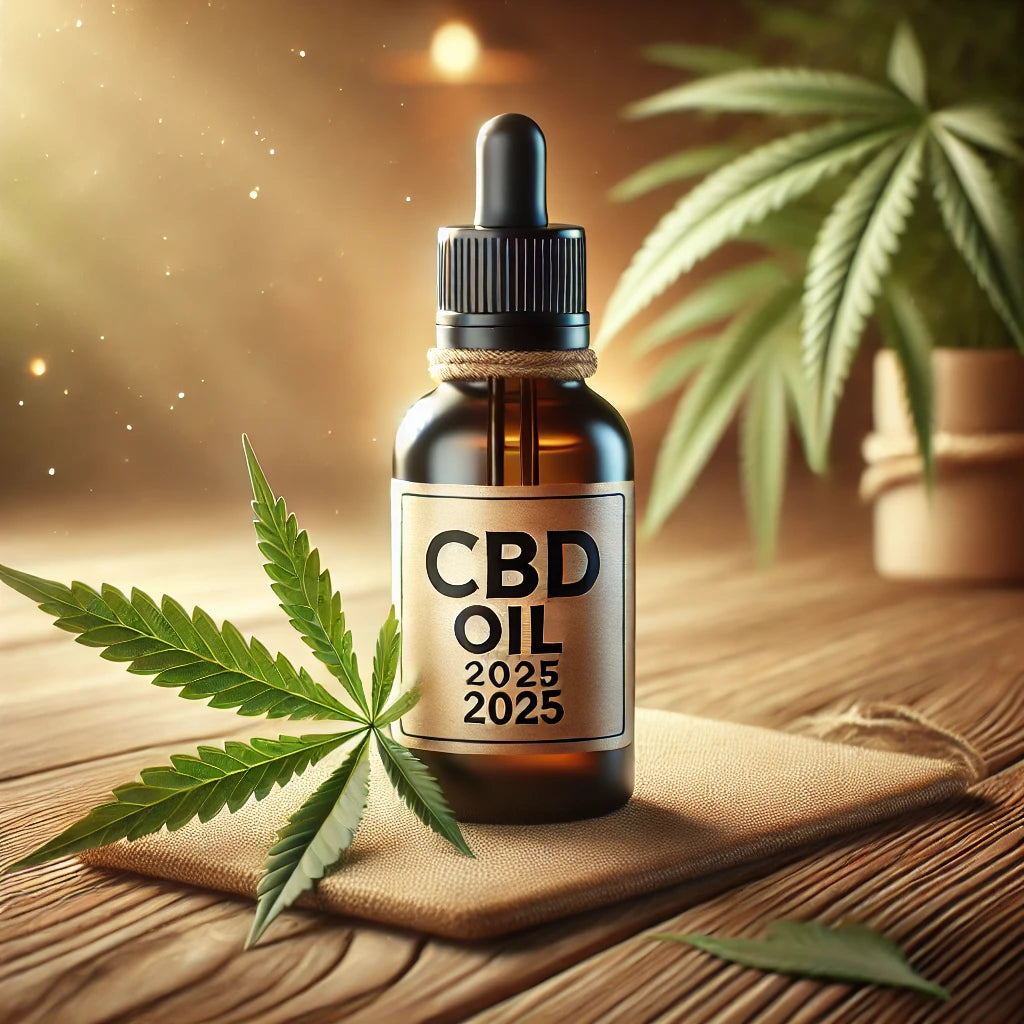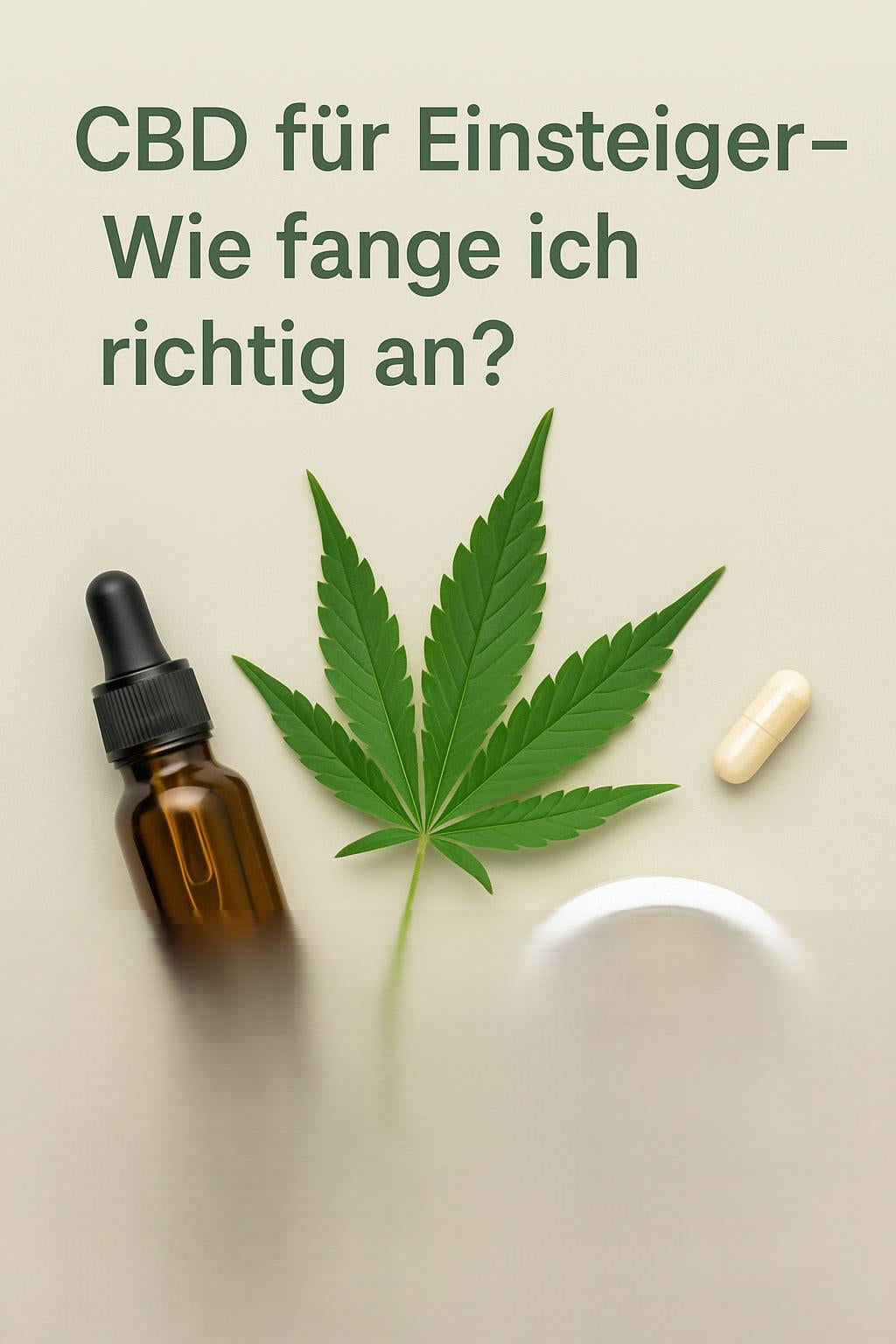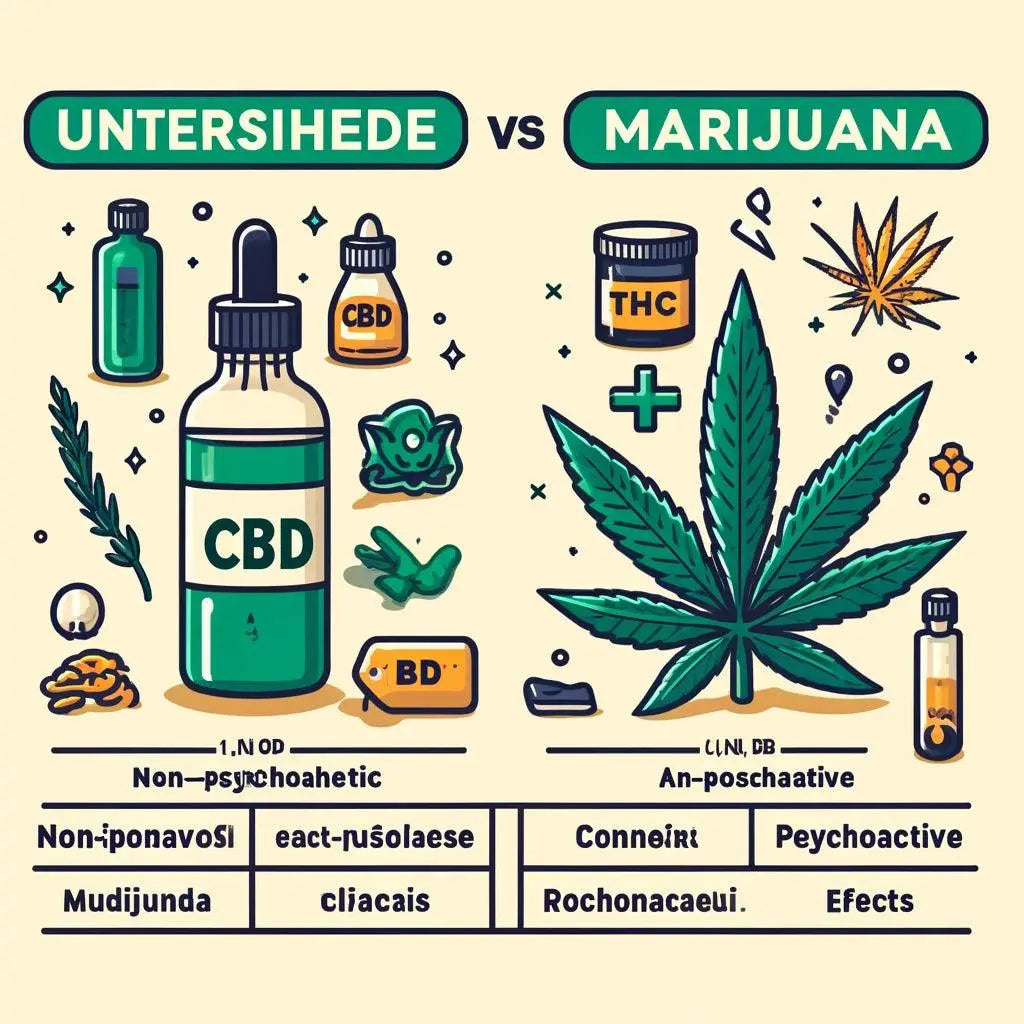Einführung
In den letzten Jahren hat CBD an Popularität gewonnen, aber viele Menschen verwechseln es immer noch mit Marihuana. Obwohl beide Produkte von der Cannabispflanze stammen, gibt es wesentliche Unterschiede zwischen ihnen. In diesem Artikel erklären wir, was CBD ist, welche Unterschiede es zwischen CBD und Marihuana gibt und wie sich CBD von THC unterscheidet.
Was ist CBD?
CBD, oder Cannabidiol, ist eine von vielen chemischen Verbindungen, die in Cannabis vorkommen. Im Gegensatz zu THC (Tetrahydrocannabinol) hat CBD keine psychoaktiven Eigenschaften, was bedeutet, dass es kein "High"-Gefühl hervorruft, das typisch für Marihuana ist. CBD wird in verschiedenen Produkten wie Ölen, Kapseln, Cremes und Kosmetika verwendet, da es potenzielle gesundheitliche Vorteile bietet, wie Schmerzlinderung, Angstabbau und Verbesserung des Schlafes.
Unterschiede zwischen CBD und Marihuana
Chemische Zusammensetzung:
CBD: Eine der vielen Cannabinoide in Cannabis. CBD wird isoliert, um Produkte zu schaffen, die keine psychoaktiven Eigenschaften haben.
Marihuana: Enthält sowohl CBD als auch THC, wobei THC für die psychoaktiven Effekte verantwortlich ist.
Wirkung auf den Körper:
CBD: Verursacht kein "High"-Gefühl. Wird oft zur Linderung von Symptomen vieler Krankheiten verwendet, wie chronische Schmerzen, Angstzustände, Epilepsie und mehr.
Marihuana: Verursacht ein "High"-Gefühl aufgrund des THC-Gehalts. Kann auch medizinisch genutzt werden, wird jedoch oft auch als Genussmittel verwendet.
Legalität:
CBD: Ist in vielen Ländern legal, vorausgesetzt, es enthält sehr niedrige THC-Werte (in der Regel unter 0,3%).
Marihuana: Die Legalität variiert je nach Land und Bundesstaat. In vielen Regionen ist es illegal oder nur auf Rezept erhältlich.
CBD vs THC
Psychoaktivität:
CBD: Nicht psychoaktiv.
THC: Psychoaktiv und verursacht ein "High"-Gefühl.
Legalität:
CBD: In vielen Regionen legal, besonders wenn es aus Industriehanf stammt.
THC: Streng reguliert und in vielen Ländern und Bundesstaaten illegal.
Medizinische Anwendung:
CBD: Verwendet zur Behandlung von Angstzuständen, Schmerzen, Epilepsie, Entzündungen und mehr.
THC: Kann zur Behandlung von Schmerzen, Übelkeit, Appetitlosigkeit und mehr verwendet werden, aber aufgrund seiner psychoaktiven Eigenschaften ist die Anwendung umstritten.
Fazit
Obwohl CBD und Marihuana aus derselben Pflanze stammen, unterscheiden sich ihre Verwendung und ihre Wirkungen auf den Körper. CBD ist nicht psychoaktiv und hat viele medizinische Anwendungen, während Marihuana THC enthält, das psychoaktiv ist und sowohl medizinisch als auch als Genussmittel verwendet wird. Das Verständnis dieser Unterschiede ist entscheidend für die Auswahl des richtigen Produkts und dessen legale Verwendung.




